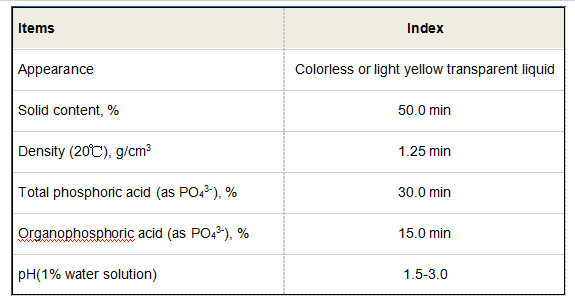floc water treatment
Floc Water Treatment An Essential Process for Clean Water
Water is one of the most vital resources on Earth, and ensuring its cleanliness and safety is paramount for public health and environmental sustainability. Floc water treatment is an important process that plays a crucial role in purifying water by removing suspended particles, including sediments, microorganisms, and organic contaminants. This article explores the intricacies of floc water treatment, its significance, and its various applications.
Understanding Flocculation
Flocculation is a method that promotes the clumping of fine particles into a floc, or a mass of agglomerated particles, which can then be easily removed from water. The process often involves the addition of chemical coagulants, such as alum, ferric chloride, or synthetic organic polymers, which neutralize the charge on suspended particles. Once this charge is neutralized, the particles can come together to form larger aggregates or flocs, which can then settle out of the water or be removed through filtration.
The Flocculation Process
The flocculation process typically involves several stages
1. Coagulation In this initial step, coagulants are added to raw water to destabilize the suspended particles. This process is usually conducted in a rapid mix chamber where the coagulants are rapidly distributed throughout the water.
2. Floc Formation After coagulation, the water moves to a slower mixing phase, known as flocculation, where gentle agitation allows the destabilized particles to collide and adhere to each other, forming larger flocs.
3. Sedimentation Once the flocs have formed, the water is allowed to sit in a sedimentation basin. During this time, the larger flocs settle to the bottom due to gravity, leaving behind clearer water.
4. Filtration The water is then passed through filters, which may include layers of sand, gravel, or other media, to remove any remaining suspended particles.
5. Disinfection Finally, the treated water often undergoes a disinfection process to eliminate any remaining pathogens before it is distributed for public use.
Importance of Floc Water Treatment
floc water treatment

Floc water treatment is essential for several reasons
- Public Health By effectively removing harmful contaminants and pathogens from water, flocculation reduces the risk of waterborne diseases such as cholera, typhoid fever, and dysentery.
- Environmental Protection It plays a vital role in protecting aquatic ecosystems by improving water quality. Removing excess nutrients and pollutants before they enter rivers, lakes, and oceans helps maintain biodiversity and prevents harmful algal blooms.
- Regulatory Compliance Water treatment facilities must adhere to stringent regulatory standards. Floc water treatment helps ensure compliance with water quality regulations and guidelines set by health and environmental agencies.
- Cost-Effectiveness Compared to some advanced water treatment technologies, flocculation is relatively low-cost and can be scaled easily, making it a preferred choice for many communities, especially in developing regions.
Applications of Floc Water Treatment
Floc water treatment is widely used in various sectors, including
- Municipal Water Supply Most municipal water treatment plants utilize flocculation as a standard practice to ensure safe drinking water meets health standards.
- Wastewater Treatment Flocculation is also a critical step in wastewater treatment processes, helping to remove solids and contaminants before the treated water is released back into the environment or reused.
- Industrial Applications Many industries, such as mining, papermaking, and food processing, employ flocculation to separate solids from liquids, improving the efficiency of their operations and reducing waste.
Conclusion
In summary, floc water treatment is a fundamental process that ensures the availability of clean and safe water. By effectively removing contaminants from water sources, it protects public health, preserves the environment, and supports various industries. As water scarcity and pollution continue to pose significant challenges globally, improving and optimizing flocculation methods will be essential in ensuring sustainable water management for future generations. The importance of this technique cannot be overstated, as it not only addresses immediate water quality concerns but also contributes to a healthier planet.
-
Water Treatment with Flocculant Water TreatmentNewsJun.12,2025
-
Polymaleic AnhydrideNewsJun.12,2025
-
Polyaspartic AcidNewsJun.12,2025
-
Enhance Industrial Processes with IsothiazolinonesNewsJun.12,2025
-
Enhance Industrial Processes with PBTCA SolutionsNewsJun.12,2025
-
Dodecyldimethylbenzylammonium Chloride SolutionsNewsJun.12,2025





